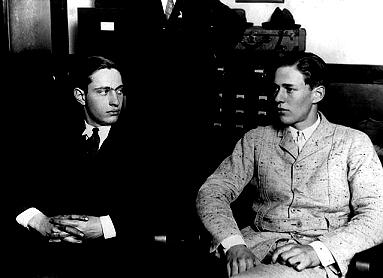
Philosophy of Human Nature
| Andrew
Mills'
Homepage |
Course
Resources
Homepage |
Dept.
of Religion
and Philosophy |
 |
Integrative
Studies 250
Philosophy of Human Nature Fall Quarter 2001
|
This is a copy of the overhead from class on Friday 21 September, with some additional remarks.
An Argument
Frankfurt claims that many people use the following argument to defend the view that someone who is coerced into doing something is not morally responsible for that act.
1. A person is morally responsible for what he has done only if he could have done otherwise (This is the Principle of Alternate Possibilities)Frankfurt thinks (1) is false and uses the cases of the many Jones to show this.2. If a person has been coerced into doing something, then he could not have done otherwise.
3. So (this conclusion follows from (1) and (2)) if a person has been coerced into doing something, then he is not morally responsible for what he has done. (Frankfurt calls this the principle that coercion excludes moral responsibility).
The Cases of the Many Jones
Let's use the following example for each of the Joneses: On Monday,
each Jones decides to go to law school. The next day, thugs show
up and make the following threat: either go to law school, or we will break
your legs.
| Does Jones go to law school? | Would Jone have gone to law school if the thugs had demanded he go to medical school instead? | Was Jones coerced into going to law school? | Is Jones morally responsible for going to law school? | Could Jones have done otherwise than go to law school? | |
| Jones-1 | YES | NO | NO | YES | NO |
| Jones-2 | YES | YES | YES | NO | NO |
| Jones-3 | YES | YES | ?? | YES | NO (?) |
If Frankfurt is right about Jones-3 (and, even more, about Jones-4) then we have an example of someone who is morally responsible for what they do, but could not have done otherwise. And, if this is right, we have a counterexample to the Principle of Alternate Possibilites. So, (1) in the above argument is false.
The Upshot
If the Principle of Alternate Possibilities is false, then this is a point in favor of the compatibilist. Do you see why? Think about it.